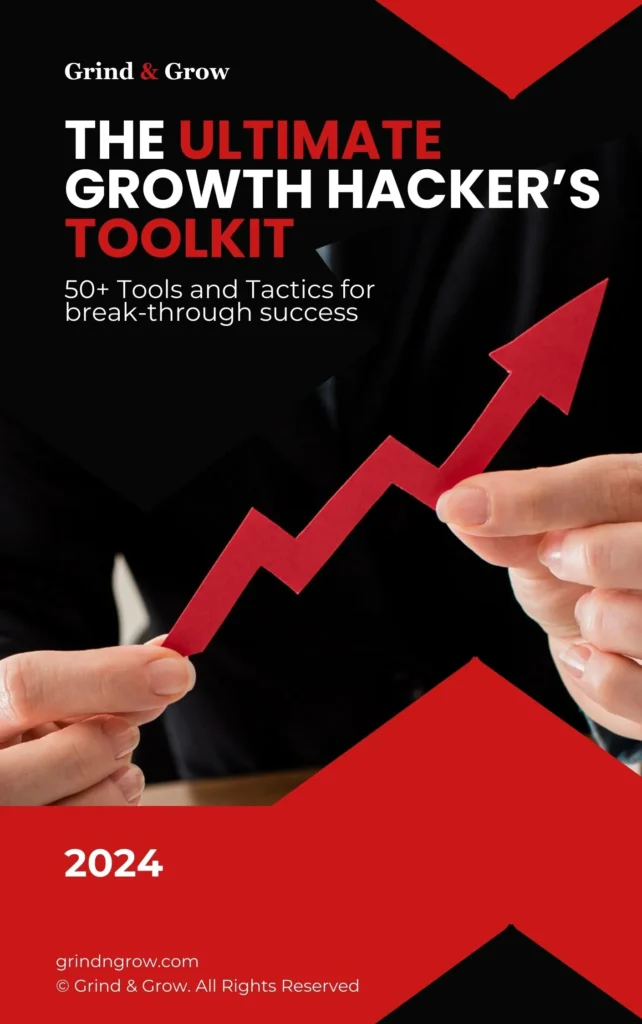Questions For Managers To Ask In An Interview
At Grind & Grow, we understand the importance of hiring the right team members. In this article, we dive into the top questions for managers to ask in an interview, helping you make informed hiring decisions and build a successful team.
Understanding Candidate Experience and Skills
When interviewing candidates, it’s pivotal to not only gauge their experience and skills but also to ensure these attributes align seamlessly with your company’s needs. Crafting pointed questions that delve into specific skill sets, past performance, and industry-specific challenges can be the difference between a good hire and a great one. Below are some strategies to help you create effective interview questions.
Diving into Specific Skill Sets
To thoroughly assess a candidate’s expertise, start with questions that require them to explain their core competencies. For example:
- Can you describe your proficiency with [specific software/tool] and how you have used it to solve problems in previous roles?
- What are the most critical skills you developed in your last position, and how do you believe they will benefit our team?
These questions compel candidates to provide concrete examples, giving you a clearer picture of their genuine capabilities.
Exploring Past Performance
Understanding a candidate’s track record through their accomplishments can provide vital insights into their suitability for the role. Consider asking:
- Can you provide an example of a project you led successfully and what the outcome was?
- Describe a time when you exceeded expectations in your job. What did you do to achieve this?
Responses to these questions will illustrate how candidates apply their skills in real-world scenarios and highlight their potential impact within your organization.
Handling Industry-Specific Challenges
Every industry comes with its unique set of challenges. To determine how a candidate might navigate these hurdles, ask questions such as:
- What are some common challenges in our industry, and how have you successfully overcome them in the past?
- Can you discuss a time when you had to adapt to significant changes or unforeseen issues in your field?
These questions will reveal a candidate’s problem-solving abilities, adaptability, and readiness to tackle the specific obstacles faced by your team.
By focusing on these tailored questions, managers can gain a comprehensive understanding of a candidate’s experience and skills, paving the way for more informed hiring decisions. As you prepare for evaluating cultural fit and team dynamics, these insights will provide a solid foundation for determining how a candidate will integrate and thrive within your organization.
Evaluating Cultural Fit and Team Dynamics
When expanding your team, identifying candidates who align with your company’s core values and mesh well with existing team dynamics is crucial for long-term success. In this chapter, we will explore strategies to assess cultural fit and team compatibility during the interview process.
Revealing a Candidate’s Values
Understanding a candidate’s values is paramount to ensuring they will thrive in your organizational culture. To uncover their core beliefs, consider asking:
– “What motivates you to come to work each day?”
– “Can you tell me about a time when you had to make an ethical decision at work?”
These questions aim to reveal the underlying principles that drive their work ethic and decision-making process.
Assessing Work Style
Work style preferences can significantly impact how an individual performs within a team setting. Gaining insights into their preferred ways of working can help predict their adaptability to your work environment. Consider these questions:
– “Describe your ideal work day. What activities and responsibilities make you most productive?”
– “How do you prioritize your tasks when you have multiple deadlines?”
These questions help you understand whether the candidate’s work style aligns with your organization’s pace and processes.
Understanding Team Collaboration
A great cultural fit is also about how well candidates work with others. You need to evaluate their interpersonal skills and ability to collaborate effectively. Probe with questions like:
– “Can you provide an example of a successful team project you contributed to? What was your role?”
– “How do you handle team members who are not contributing effectively?”
These insights can reveal their approach to teamwork and how they handle differing perspectives within a collaborative environment.
Handling Conflicts
Conflict resolution skills are indispensable in maintaining a harmonious workplace. To gauge how candidates manage disputes, ask:
– “Tell me about a time you had a conflict with a colleague. How did you resolve it?”
– “What steps do you take to avoid misunderstandings in teamwork situations?”
Their responses will outline their conflict resolution strategies and provide a glimpse into their interpersonal diplomacy.
Contributing to Company Culture
Finally, it’s essential to determine whether a candidate will contribute positively to your company culture. Questions that can help include:
– “What aspects of your previous company cultures did you enjoy the most? What did you find challenging?”
– “How do you stay engaged and motivated in a company’s culture?”
These questions aim to understand if the candidate’s experiences and expectations align with your company’s cultural environment.
By incorporating these targeted questions into your interview process, you will be better equipped to evaluate whether a candidate will fit well with your company culture and team dynamics, leading to more successful and enduring hires.
Evaluating Problem-Solving and Critical Thinking Skills
Problem-solving and critical thinking are indispensable attributes in any high-performing team. Going beyond the basic question-and-answer format, managers should consider scenario-based questions and practical tests to reveal a candidate’s true potential.
Scenario-Based Questions
Scenario-based questions provide a dynamic way to assess how candidates approach complex problems. By introducing real-world dilemmas relevant to your industry, you can observe their analytical skills, creativity, and resourcefulness.
For instance, if you are hiring for a marketing role, you might present the following scenario: “Imagine our company is launching a new product, but midway through the campaign, a major competitor releases a competing product with similar features at a lower price. How would you handle this situation?” This question assesses the candidate’s ability to think quickly, formulate strategies, and manage stress.
Practical Tests
Practical tests can also be invaluable for assessing a candidate’s critical thinking. In a tech environment, you could ask a candidate to debug a piece of code or solve a complex algorithm problem. For customer service roles, you might offer a role-playing exercise where the candidate must resolve a difficult customer complaint.
For a sales position, consider this practical test example: “You get a lead from a potential big client who is also considering competitors. Draft a brief sales pitch that could sway their decision in our favor.” This will unearth their persuasive skills, market understanding, and ability to think on their feet.
Analyzing Candidate Responses
When analyzing responses, managers should pay attention to several key indicators:
1. Logical Sequence of Thinking: Are they presenting their solutions in a structured format?
2. Creativity and Innovation: Do they offer unique perspectives or solutions?
3. Practicality: Are their solutions feasible given real-world constraints such as time, budget, and resources?
4. Confidence: Does the candidate exhibit confidence in their solutions, without appearing overconfident?
In the context of your broader hiring strategy, this chapter ties in with evaluating cultural fit and understanding career goals. Identifying candidates who excel in problem-solving and critical thinking will naturally complement considerations of how they collaborate with teams and fit within your company’s growth vision.
Exploring Career Goals and Motivations
Understanding a candidate’s career aspirations and motivations is vital for ensuring a good fit with your company’s growth trajectory. To uncover a candidate’s short-term and long-term goals, their reasons for interest in the position, and what they seek in a workplace, it’s crucial to ask the right questions. Here are some essential questions managers should consider:
Short-Term and Long-Term Goals
Gaining insight into a candidate’s short-term and long-term career goals can reveal a lot about their commitment and potential fit within your company.
- “What are your professional goals for the next 1-3 years?” This question allows the candidate to describe their immediate objectives and skill-building aspirations.
- “Where do you see yourself in 5-10 years?” This helps you understand their long-term vision and whether it aligns with the company’s future opportunities.
- “What steps do you plan to take to achieve these goals?” This provides insight into their planning and proactive nature.
Interest in the Position
Understanding why a candidate is interested in your open position can help gauge their alignment with the role and the company.
- “What made you apply for this position?” This can reveal their motivations and what they find attractive about the role.
- “How does this position fit into your career plan?” This question helps understand how the role aligns with their professional growth.
- “What do you know about our company and industry?” Evaluating their knowledge about your company shows their level of interest and research effort.
Desired Workplace Environment
It’s essential to determine what a candidate is seeking in a workplace to ensure your company can meet their expectations.
- “What do you look for in a workplace culture?” This helps ascertain if their values align with the company’s culture.
- “What motivates you to do your best work?” Understanding their motivators can provide insight into how they can be most productive.
- “How do you prefer to be managed?” This reveals their ideal managerial style and compatibility with potential supervisors.
Aligning Aspirations with Company Vision
Once you’ve gathered this information, the next step is to align their aspirations with your company’s vision. If a candidate’s short- and long-term goals, interest in the position, and desired workplace environment align with what your company offers, you create a strong foundation for long-term engagement and growth.
By focusing on the candidates’ career goals and motivations, you can ensure a mutual fit that supports both their advancement and the company’s continued success.
Common Questions Answered
FAQs
- Q: What are good questions to ask about a candidate’s experience?
A: Focus on their previous job responsibilities, key accomplishments, and specific skills relevant to the role. - Q: How can I assess cultural fit during an interview?
A: Ask about their work style, team collaboration experiences, and values to see if they align with your company culture. - Q: What types of questions reveal a candidate’s problem-solving skills?
A: Use scenario-based questions and practical tests to evaluate their critical thinking and decision-making processes. - Q: Why is it important to understand a candidate’s career goals?
A: Knowing their career aspirations ensures their goals align with your company’s growth and opportunities, leading to long-term satisfaction.
Conclusion
Incorporating these questions for managers to ask in an interview will significantly enhance your hiring process, ensuring you select candidates who are the best fit for your team and culture. Grind & Grow is dedicated to providing insights and strategies for growing your business efficiently.
Interested in how you can accelerate the growth of your business? Find more resources like this one to grow your business cost effectively at grindngrow.com, and consider joining our mailing list to get exclusive tips and extraordinary savings on services to grow your business.


